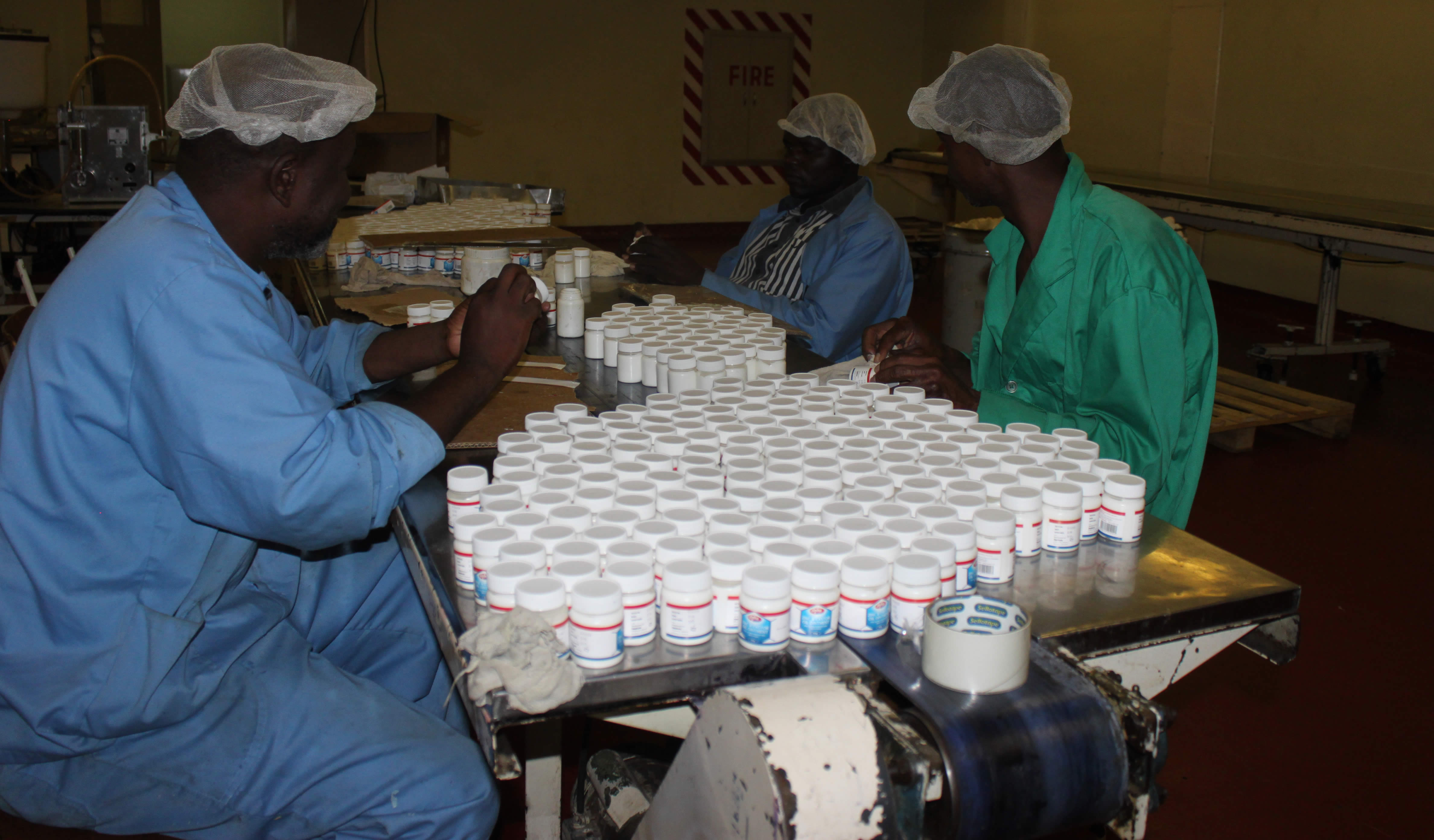
The Sunday News

Ngonidzashe Chiutsi Business Correspondent
ONE of the country’s biggest drugs and pharmaceutical companies — Zimbabwe Pharmaceutical (ZimPharm) — has re-opened its branch in Bulawayo after a group of local pharmacists took over and mobilised more than $300 000 in capital. The company which was previously owned by MedTech was closed in 2012 after facing viability problems resulting in workers rioting demanding their salaries.
In an interview, ZimPharm director Mr Tavengwa Mukuhlani said when they decided to take over the company it had only $23 in its account but they pooled resources since 2013 to restart operations.
“ZimPharm closed in 2012 and about 78 workers lost their jobs. A new management took over the company from 2013 and since then we have been pooling resources while restarting production. We now have 40 workers and production is improving steadily,” he said.
Reviving the company was not easy, he said, as it owed various creditors varying amounts of money.
“When we took over the company things were very bad. The company had only $23 in its account. Before we took over the company we assessed the situation and looked at the stock and the machines that were there. We had no meaningful capital injection but we had to use the little resources available and machines that were there,” he said.
He said the company also owed a lot of money to utility suppliers and companies.
“We started to look for company creditors as the company had borrowed too much. The company owed a lot of money to Zimbabwe Revenue Authority, Zimbabwe Electricity Supply Authority and the Bulawayo City Council. Zesa had disconnected power over non-payment and also the BCC had cut water supplies due to debt. We went to Zesa and BCC and negotiated for a payment plan and they understood our plight and reconnected. We would like to thank them for their kind gesture,” he said.
“We also started paying other companies that we owed money like those companies that had supplied the company with packaging, labels and leaflets materials. We are still paying some of them,” said the official.
He said some of the creditors took them to court over debts.
“Sometime our furniture was attached by the Deputy Sheriff because we had not paid a certain security company,” said the director.
Mr Mukuhlani said capital was the major challenge to revive the company.
“We had hoped that, as a pharmaceutical company, we could access the Distressed Industries and Marginalised Areas Fund, but we failed. So we had to start afresh. We started at zero percent capacity utilisation and we are now at 46 percent,” he said, adding that they also secured a loan from a local bank to augment their contributions.
The company is now producing a wide range of pharmaceutical drugs such as betarange, alpharange, mosbar, aqueous cream and bottled water.
“When we started production, it was difficult to penetrate that market because we started producing some products that we had stopped producing about seven years ago. Some of the clients had already forgotten about them,” he said.
“Again people did not believe that we were the ones producing those products and did not want to deal with us thinking we were middlemen. They were very skeptical about us. However, after some time companies started patronising our business.”
He said they were now exporting some of their products to neighbouring countries.
“We are now exporting to Zambia and also to Papua New Guinea where we are exporting our mosquito repellant called Mosbar. The product is very popular in that country and even locally,” he said.
He said there were still some challenges which they were facing although they were committed to see the firm back on track.
“The biggest challenge that we face is that we are still using outdated equipment and machinery and it affects our efficiency. The other challenges are the inputs. We import 90 percent of our inputs although the Government has removed duty on the raw materials,” he said.
He also bemoaned that labour costs were high in a struggling industry.
“Labour is very expensive. Because we are classified as a special industry the labour rates are very high. They don’t reflect the state of the industry. It’s an industry that is struggling,” said Mr Mukuhlani.
He said importing drugs was affecting the viability of the industry.
“We have imported drugs that are affecting our industry. For example we have imported cough mixture on the local market but we don’t need it. Why should we import it when the local industry can supply the whole of this country?”



